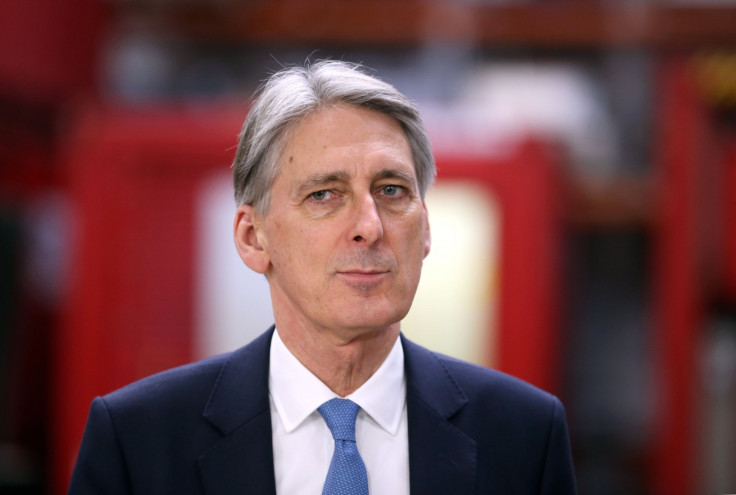Chancellor Philip Hammond supports a longer 'transitional' Brexit deal
He tells MPs that taking longer than two years to leave EU means less disruption.

Philip Hammond backs a "transitional" arrangement for Brexit, saying it would be "helpful" to give Britain longer than two years to leave the European Union.
The chancellor told ministers that a slower Brexit would mean less disruption and less risk to the country's financial stability.
In comments that echoed those of Bank of England governor Mark Carney, Hammond told the Treasury select committee that there was an "emerging view" among "thoughtful politicians" that the UK needs more than two years.
He said that "having a longer period to manage the adjustment between where we are now as full members of the EU and where we get to in the future as a result of negotiations would be generally helpful".
On immigration, Hammond said the UK was unlikely to prevent the flow of highly skilled workers and that the government would not "slam all doors shut".
However, the Financial Times has reported that Brexit secretary David Davis told a private meeting with key City figures that he is "not really interested" in a transitional deal and that the cabinet is not yet united on the issue.
A spokesman for Theresa May said that "no decisions have been taken" and that the prime minister had said she wanted to avoid a Brexit "cliff edge", the FT reported.
The comments on a transitional deal have reassured businesses and sparked a small increase in the value of sterling.
But Tim Farron, the Liberal Democrat leader, said Hammond's view was an example of the levels of confusion in the government. "One day David Davis says there is no need for a transitional deal. The next [day] the chancellor is backing one."
Former Ukip leader Nigel Farage said he did not like the look of it and claimed it looked like "more backsliding", The Guardian reported.
"Half-Brexit is where they're going. I think they're going to fudge and give us a Norwegian-type deal," Farage added, referring to the arrangement that allows Norway access to the single market but means it has to follow EU rules, including on migration.
The chancellor also said on Monday (12 December) that a transitional deal would not just be to benefit the country's financial services industry. More time may also be needed to train people to deal with a "more intensive" process at the borders.
"For example, depending on what future customs arrangements are between the UK and European Union, there could be significant physical infrastructure changes that need to be made at ports of entry and exit, not only in the UK but on continental Europe as well," Hammond said.
"And I think the further we go into this discussion, the more likely it is that we will mutually conclude that we need a longer period to deliver," he added.
© Copyright IBTimes 2025. All rights reserved.






















